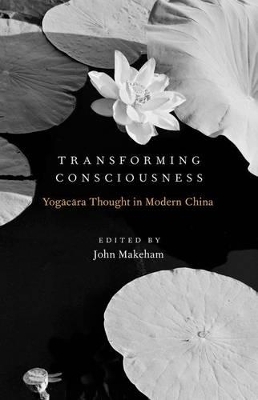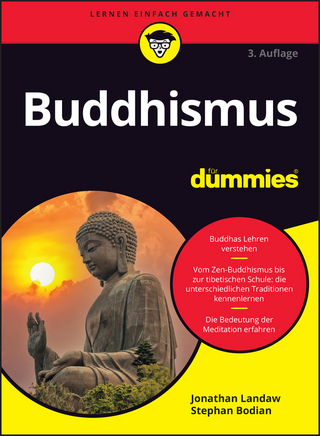
Transforming Consciousness
Oxford University Press Inc (Verlag)
978-0-19-935813-7 (ISBN)
Transforming Consciousness forces us to rethink the entire project in modern China of the "translation of the West." Taken together, the chapters develop a wide-ranging and deeply sourced argument that Yogacara Buddhism played a much more important role in the development of modern Chinese thought (including philosophy, religion, scientific thinking, social, thought, and more) than has previously been recognized. They show that Yogacara Buddhism enabled key intellectuals of the late Qing and early Republic to understand, accept, modify, and critique central elements of Western social, political, and scientific thought. The chapters cover the entire period of Yogacara's distinct shaping of modern Chinese intellectual movements, from its roots in Meiji Japan through its impact on New Confucianism. If non-Buddhists found Yogacara useful as an indigenous form of logic and scientific thinking, Buddhists found it useful in thinking through the fundamental principles of the Mahayana school, textual criticism, and reforming the canon. This is a crucial intervention into contemporary scholarly understandings of China's twentieth century, and it comes at a moment in which increasing attention is being paid to modern Chinese thought, both in Western scholarship and within China.
Professor of Chinese Studies, Faculty of Asian Studies, Australian National University
Table of Contents ; List of Contributors ; John Makeham, Introduction ; Part 1: The Indian and Japanese Roots of Yogacara ; 1. John Powers, Yogacara: Indian Buddhist Origins ; 2. John Jorgensen, Indra's Network: Zhang Taiyan's Sino-Japanese Personal Networks and the Rise of Yogacara in Modern China ; Part 2: Early Appropriations ; 3. Scott Pacey, Tan Sitong's Great Unity: Yogacara in An Exposition of Benevolence ; 4. Viren Murthy, Equality as Reification: Zhang Taiyan's Yogacara Reading of Zhuangzi in the Context of Global Modernity ; Part 3: Yogacara and Modern Science ; 5. Scott Pacey, Taixu, Yogacara, and the Buddhist Approach to Modernity ; 6. Erik Hammerstrom, Yogacara and Science in the 1920s: The Wuchang School's Approach to Modern Mind Science ; Part 4: Yogacara and Confucian Thought ; 7. Thierry Meynard, Liang Shuming and His Confucianized Version of Yogacara ; 8. John Makeham, Xiong Shili's Critique of Yogacara Thought in the Context of his Constructive Philosophy ; Part 5: The Return to "Genuine Buddhism" ; 9. Eyal Aviv, Ouyang Jingwu: From Yogacara Scholasticism to Soteriology ; 10. Dan Lusthaus, Lu Cheng and the Alambana-pariksa: Yogacara, Epistemology and Genuine Buddhism ; 11. Chen-kuo Lin, The Uncompromising Quest for Genuine Buddhism: Lu Cheng's ; Critique of Original Enlightenment ; Part 6: Denouement ; 12. Jason Clower, Chinese Ressentiment and Why New Confucians Stopped Caring About Yogacara ; Glossary ; Bibliography of Works Cited ; Index
| Verlagsort | New York |
|---|---|
| Sprache | englisch |
| Maße | 234 x 155 mm |
| Gewicht | 601 g |
| Themenwelt | Geisteswissenschaften ► Religion / Theologie ► Buddhismus |
| ISBN-10 | 0-19-935813-3 / 0199358133 |
| ISBN-13 | 978-0-19-935813-7 / 9780199358137 |
| Zustand | Neuware |
| Haben Sie eine Frage zum Produkt? |
aus dem Bereich


